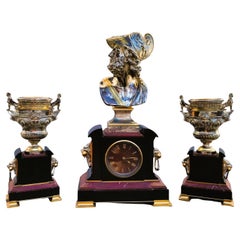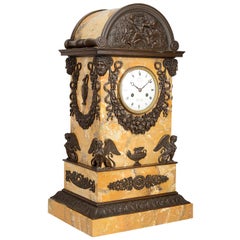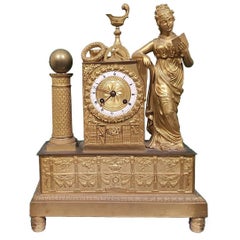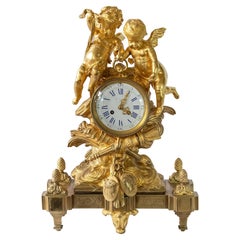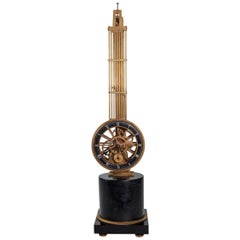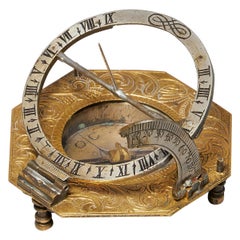Grand Tour Clocks
For 18th-century young British noblemen, no education was complete without a year on the Grand Tour. Although it had no official route, the Grand Tour focused on places foundational to European art, literature and architecture, including sites in France, Germany, Switzerland and, most importantly, Italy. It was an opportunity not just to witness the roots of the classics they had studied but also to take some of it home. Grand Tour furniture was among the souvenirs.
Grand Tour furniture ranged from marble architectural models replicating ancient wonders to actual antiquities often taken illicitly, leaving a legacy of looting still being unraveled today. Other items reflected the artistic richness of the Renaissance cities and other destinations. In Italy, this included scagliola tables and pedestals mimicking marble as well as tabletops and wall panels embedded with pietra dura hard stone mosaics.
Furniture was also developed to display Grand Tour purchases in the owner’s home, presenting them as a cultivated and well-traveled person. Mahogany collector’s cabinets held objects like intaglio moldings of coins and seals while others had specialized drawers that framed pietra dura panels.
Many objects were specifically produced for Grand Tour collectors. Often accompanied by retinues on journeys lasting months or years, the elite travelers, the wealthiest of whom extended their trips to Egypt and the Holy Land, required artful personal mementos befitting the experience. For example, Grand Tour micromosaics — small artworks, most not more than two inches wide — arose from the entrepreneurial impulses of artisans who had trained in the Vatican’s workshops.
Grand Tour journeys would help inform a range of decorative styles such as neoclassical, Rococo and Adam style. (Architect and designer Robert Adam toured Italy and France for five years.) The Grand Tour flourished at a time of economic prosperity and political stability, but the French Revolution in 1789 brought it to an end. Yet as the tradition faded in popularity in England, the rising wealth of the United States led to an increase in tourism across the Atlantic and a similar passion for collecting to show one’s worldliness.
Find a collection of Grand Tour decorative objects, wall decorations, lighting and other furniture on 1stDibs.
19th Century French Antique Grand Tour Clocks
Marble, Bronze
Late 19th Century French Antique Grand Tour Clocks
Siena Marble, Bronze
19th Century European Antique Grand Tour Clocks
Bronze, Gold
19th Century French Antique Grand Tour Clocks
Bronze, Enamel
1880s Swiss Antique Grand Tour Clocks
Walnut
19th Century French Antique Grand Tour Clocks
Marble, Bronze
1890s French Antique Grand Tour Clocks
Ormolu
Late 19th Century French Antique Grand Tour Clocks
Bronze, Ormolu
Mid-19th Century French Antique Grand Tour Clocks
Bronze
19th Century French Antique Grand Tour Clocks
Marble, Brass
1880s Italian Antique Grand Tour Clocks
Bronze
Early 19th Century French Antique Grand Tour Clocks
Bronze
Early 19th Century French Antique Grand Tour Clocks
Bronze
Late 19th Century French Antique Grand Tour Clocks
Bronze
19th Century French Antique Grand Tour Clocks
Marble, Bronze
18th Century German Antique Grand Tour Clocks
Brass
Early 20th Century German Grand Tour Clocks
Paper
Late 19th Century French Antique Grand Tour Clocks
Silver
